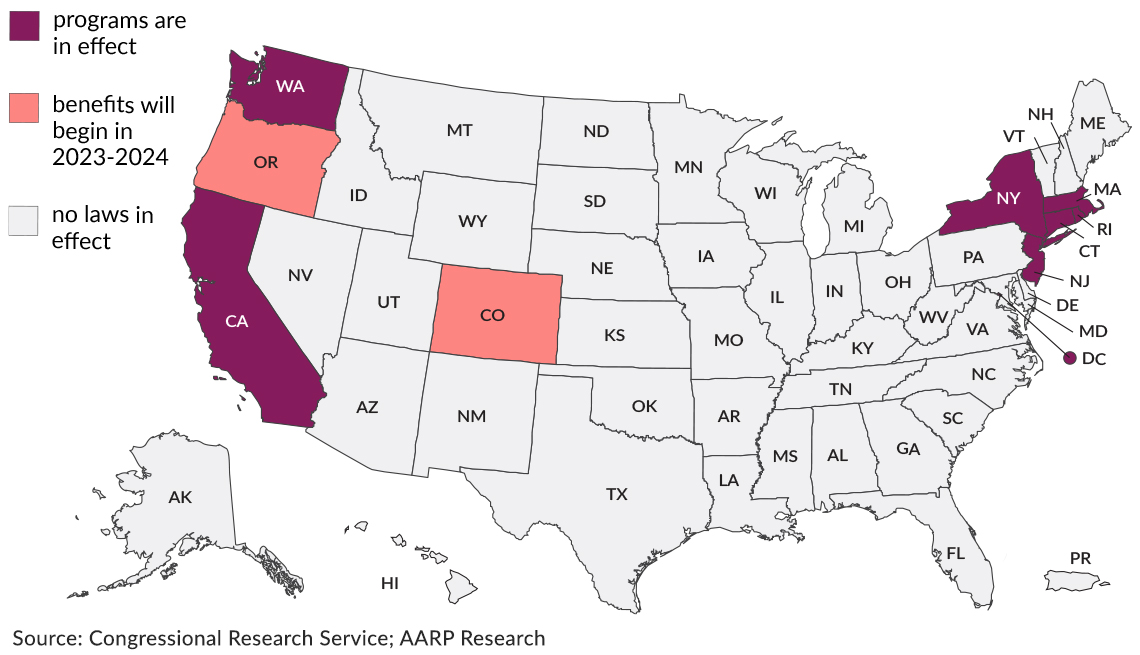How Much Does Publix Pay 14 Year Olds

How Much Does Publix Pay A 14-Age One?
A 14-year old can earn a variety of wages depending on their position, skills and other factors.
You can make $9.82 per hour as a bagger.
The Floral Clerk also earns more than the Bagger. Their wages range from $10 up to $12.
Earnings for 14-year olds who work at Publix are based on the hourly rate and number of hours worked.
If you are older (15, or 16 years old). Your level, your skills, the position you hold, and other factors will determine whether or not it is possible. You can find more information about 15-year-olds working at Publix and 16-year-olds working at Publix.

How Much Does Publix Pay Per State?
Because of different standards of living and state laws and taxes, it’s not surprising that Publix salaries differ across the US states, even when it comes to the same positions.
For example, let’s look at how much Publix cashiers in different states earn per hour.
You can see that cashiers at Publix, in Florida earn a higher rate per hour than those in Georgia or Tennessee.
But why is that? Because the condition of the market dictates the pay rate at Publix. That means that the wages reflect the standards of living in certain states.
Publix in Florida is likely to pay more than other supermarkets. The cost of living is higher in Florida than it is in Georgia and Tennessee.

What is the pay for part-time workers at Publix?
The hourly earnings for employees at Publix vary because of state and city minimum wage laws. We can provide a rough idea about the average hourly wage for each job.
Cashier (Hourly)
If you were a fan of this, you might also appreciate
Does Ups Do Money Orders
You will make between $14 and minimum wage as a Publix cashier. If you are coming in at entry-level without any prior experience, then you will most likely start at minimum wage.
A Publix cashier’s average rate per hour is $11.
Floral Clerk (Hourly)
The rate of pay for floral clerks is between minimum wage and $12 an hour. You will most likely start at minimum wage unless you have previous experience.
Florists in Publix earn an average of $10 per hour.
Baggers at Publix make anywhere between minimum wage and $11 per hour. If this is your first job, you will most likely start at minimum wage.

What is the pay for a part-time job at Publix?
However, you shouldn’t be surprised if you find yourself in part-time status and working at least 40 hours a week for an extended period of time. All depends on the urgency with which your manager needs you to fill in and work for others.
So, if you are 14 years old and want to become a bagger, you will make $10 an hour and work approximately 10 to 20 hours a week. As a fourteen-year-old working 20 hours per week, you will make approximately $200 per week, less taxes.

What Does Publix Pay For Each State?
Even for the same position, it is expected that Publix salary varies across states in the US, due to the different living conditions, tax laws, and state legislation.
Take a look, for example, at the average hourly wage of Publix cashiers across several states.
Florida, Sunshine State: In Florida, the Sunshine State where Publix is located, cashiers earn an average wage of $12.94/hour.
* Georgia: Georgia’s Publix supermarket cashiers earn $11.89 per hour, which is slightly less than their Florida counterparts’ wages.
* Tennessee: Our data indicate that Tennessee Publix grocery cashiers earn $11.16 per hour.
As you can see, Publix cashiers in Florida make more money per hour than their counterparts in Georgia and Tennessee.
But what’s the deal? Because market conditions determine Publix’s hourly wage. The wages are a reflection of the different living conditions across the states.
If you appreciated this, you might also enjoy
How To Send Starbucks Gift Card Via Text
Publix’s supermarkets in Florida are the most rewarding. Florida’s cost of living is likely significantly greater than Georgia’s or Tennessee’s.
If you found this entertaining, you might enjoy
Target Diaper Return Policy
Read- Publix Holiday Pay

Teen Jobs At Publix And Age Requirements
Cashier (Hourly)
The cashiers are Publix’s most visible employees, and they provide the best customer service. Because they ring up groceries, they also play an essential role in profitability. The cashiers at Publix are responsible for ensuring that the right price is applied to each product sold, and providing the customers with the correct change.
Job responsibilities include:
Floral Clerk (Hourly)
If you love blooms and balloons, working at Publix as a floral clerk may be the entry-level job for you. Floral clerks are responsible for the proper presentation and care of flower, plant and balloon products. They also provide customer service to those who come into the Floral Department in search of that perfect gift.
Floral clerks provide excellent customer service by greeting and answering questions from customers, selling products, providing information to customers that will help them make informed decisions about the product, and helping the department order the right amount of product.
To work as a florist clerk at Publix, you must have at least fourteen years of age.
Bagger Hourly
A bagger, also known as a Front Service Clerk, helps differentiate Publix from its competitors by providing carryout services to the vehicles of customers. They interact with customers constantly, and often make a customer’s final impression of the store and their level of service. Front Service Staff are vital to ensure complete customer satisfaction.
Job responsibilities are:
You must have at least fourteen years of age to work at Publix as a bagger.
:max_bytes(150000):strip_icc()/Publix-3x2-1-9cfb548fa5fa43f192c4e71bb034f978.png)
1994-2005: Dolgen/Lansing And “Old” Viacom Era
United Television, a joint venture between Viacom, Chris-Craft Industries, and United Television, launched United Paramount Network in 1995 with Star Trek: Voyager, its flagship show. This fulfilled Barry Diller’s 25-year-old plan to create a Paramount Network. In 1999, Viacom bought out United Television’s interests, and handed responsibility for the start-up network to the newly acquired CBS unit, which Viacom bought in 2000 – an ironic confluence of events as Paramount had once invested in CBS, and Viacom had once been the syndication arm of CBS, as well. [87] During this period the studio acquired some 30 TV stations to support the UPN network, also acquiring and merging in the assets of Republic Pictures, Spelling Television and Viacom Television, almost doubling the size of the studio’s television library. Television division was responsible for such hits as NCIS, Becker, and Entertainment Tonight. It also produced Frasier which was the most popular prime-time show of the decade. Paramount also gained the ownership rights to the Rysher library, after Viacom acquired the rights from Cox Enterprises.
Paramount, its subsidiaries, and affiliates operating as “Viacom Entertainment Group”, also owned the 4th largest theme park group in North America. They launched a number of successful, location-based attractions, including the long-running “Star Trek” at the Las Vegas Hilton. Famous Music – the company’s celebrated music publishing arm almost doubled in size and developed artists including Pink, Bush, and Green Day, as well as catalog favorites including Duke Ellington and Henry Mancini. The Paramount/Viacom licensing group under the leadership of Tom McGrath created the “Cheers” franchise bars and restaurants and a chain of restaurants borrowing from the studio’s Academy Award-winning film Forrest Gump – The Bubba Gump Shrimp Company. Famous Music, in conjunction with the studio, created over 10 “Broadway musicals”, including Irving Berlin’s White Christmas and Andrew Lloyd Webber’s Sunset Boulevard. United International Pictures, the company’s foreign arm, was the leading distributor in international markets for 10 straight years, representing Paramount Universal, and MGM. Simon and Schuster was acquired by Viacom Entertainment Group, becoming the dominant US trade book publisher.
In 2002, Paramount; along with Buena Vista Distribution, 20th Century Fox, Columbia TriStar Pictures Entertainment, MGM/UA Entertainment, Universal Studios, DreamWorks Pictures, Artisan Entertainment, Lions Gate Entertainment, and Warner Bros. formed the Digital Cinema Initiatives. Under the guidance of Paramount’s Chief Operating Officer Tom McGrath, they developed technical standards to replace the 100-year old film technology. DCI, which was founded in 1988 to “establish and document voluntary specs for an open architectural for digital cinema” that would ensure a high and uniform level of performance and reliability as well as quality control. McGrath was also the head of Paramount’s Blu-ray Disc initiative.

